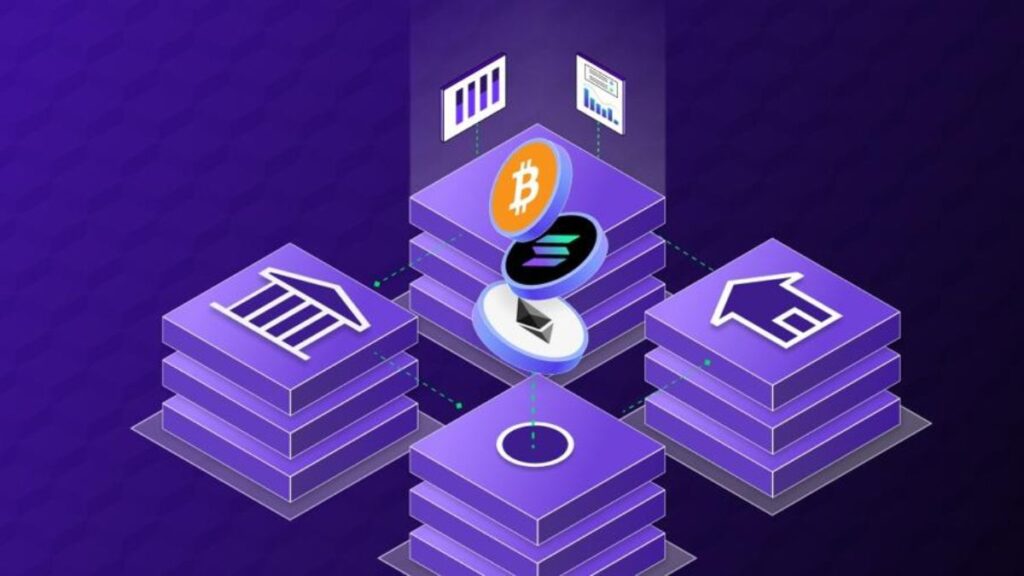Staring at pricey assets like real estate or art, feeling like they’re out of reach? Tokenization’s shaking things up, turning those assets into digital shares you can buy with a tap. In 2025, it’s making waves across global finance. Let’s unpack what’s behind this trend and how it could bring you closer to the action.
You’ve probably scrolled past listings for swanky penthouses or rare collectibles, only to sigh at the impossible price tags. Been there. Tokenization changes the game, breaking those assets into digital tokens you can own on a blockchain. It’s not just crypto buzz—banks, investors, even governments are rethinking how wealth works. Want to know how this tech could let you in on the deal? Let’s dig in.
Owning a Piece of the Big Stuff
Blockchain’s a head-scratcher for most—no judgment, it’s a beast. Here’s the gist: tokenization takes something like a $5 million beachfront villa or a vintage Porsche and splits it into digital tokens on networks like Ethereum or Solana. Each token, maybe $1,000, is your slice of the pie. No slogging through brokers or stacks of paperwork—just smart contracts zipping the deal through, locked tight on a blockchain.
The potential’s huge. Deloitte’s 2024 report figures tokenized real estate could hit $4 trillion by 2035, up from $0.3 trillion now, growing 27% a year. Curious how crypto ties in? Swing by OKX to check the current Bitcoin price—it’s a solid spot for real-time market data, charts and trading tools to navigate this world. Trouble is, global rules are a patchwork quilt, and blockchains can lag like a bad Wi-Fi signal. Still, it’s a chance to own something big, no matter your wallet size.
Why the Big Shots Are Hooked
Tired of bank transfers crawling at a snail’s pace? Tokenization’s like a turbo boost for finance. The World Economic Forum says it could shave $15–20 billion a year off infrastructure costs, with deals wrapping in seconds, not days. That’s a relief for anyone who’s waited out endless forms. Years back, a friend got stuck for weeks on a property deal—tokenization would’ve saved his sanity.
BlackRock’s BUIDL fund, launched on Ethereum in 2024, is already juggling $2.5 billion in tokenized U.S. Treasuries, snagging 41% of that market, per CoinDesk. Franklin Templeton’s 2024 tokenized mutual fund shows investors are itching for this. It’s like letting everyone grab a piece of prime real estate or art, not just the ultra-rich. Sure, crypto’s ups and downs—Bitcoin’s no stranger to that—plus regulatory fog can spook the suits. But they’re jumping in anyway, and that says something.
Tokenization Making Headlines
Think about a $300 million housing project in Canada, chopped into tokens you could buy from your couch—that’s what T-RIZE Group pulled off in 2024, per Deloitte. Or Hong Kong’s 2024 multicurrency green bond, launched on HSBC Orion, showing even governments are game, per the World Economic Forum. Then there’s gold—Euroclear and the World Gold Council tokenized it in 2024, making it tradable without a vault.
A few standouts:
- RealT’s platform lets you buy U.S. property shares faster than you can scroll X, per Deloitte.
- Hong Kong’s bond proves the cautious are warming up.
- Tokenized gold’s like trading cash, no heavy lifting.
Bitcoin’s often your key to these deals, like digital pocket change for big buys. It’s as if someone left the door open to the high-roller club.
Dodging the Roadblocks
New tech’s never a straight line—tokenization’s got its share of potholes. Regulations? A total jumble. The EU’s 2024 MiCA rules cover crypto but leave tokenization in a fog, per the World Economic Forum. Stateside, Robinhood’s 2025 tokenized stock push on Arbitrum hit a wall when OpenAI called foul over legal gaps, per Decrypt. For startups, wading through global rules is like untangling Christmas lights—slow and frustrating.
Tech’s another hurdle. Ethereum, with 55% of the $250 billion tokenized asset market, per CoinDesk, can hit you with fees that sting like a bad coffee burn. Tried sending crypto lately? Ouch. Solana and newer systems are trying to smooth things out, but linking blockchains is messy. Still, Hong Kong’s 2024 bonds show progress—big players are testing the waters, according to the World Economic Forum. Ever wondered if you’d trust a blockchain with a piece of a skyscraper? It’s starting to feel less like a leap.
Earning Trust, Step by Step
Convincing folks blockchain’s safe is like teaching someone to trust online banking back in the ‘90s—takes patience. Plenty still see it as a gamble, even with its bulletproof security. Hong Kong’s bond issuances since 2023 are helping, building cred one deal at a time.
Platforms like OKX, with tools to track crypto without the jargon overload, make it less daunting. It’s like swapping a clunky flip phone for a smartphone—awkward at first, but you figure it out. Trust’s coming along, pulling more folks into the fold.
Wealth You Can Actually Touch
Tokenization is flipping how you think about money. Picture a delivery driver in Lagos grabbing a stake in a Dubai tower or a student in Seoul trading tokenized art. By 2025, hundreds of projects—real estate, gold, bonds—are tokenized, per Deloitte and CoinDesk. Bitcoin’s your bridge, tying crypto’s energy to this new asset world.
Here’s the real deal: you don’t need a trust fund to get in. Joseph Lubin, Ethereum’s co-founder, hit it dead-on in Decrypt: “A token is something representing something else… a symbol representing value.” That value—a condo, a bond, a rare print—is closer than you think, no matter where you’re at. It’s like stumbling on a backroad to wealth you never knew existed.
Tokenization’s not some shiny tech promise—it’s a real shot at a better financial world. It’s smashing barriers, letting you claim a piece of assets once locked away for the elite. Sure, the rules are messy and the tech’s got kinks, but the train’s moving: banks, governments and folks like you are hopping on. Whether you’re checking crypto prices or eyeing tokenized deals, one thing’s certain—blockchain’s changing wealth, and you’ve got a front-row seat.






